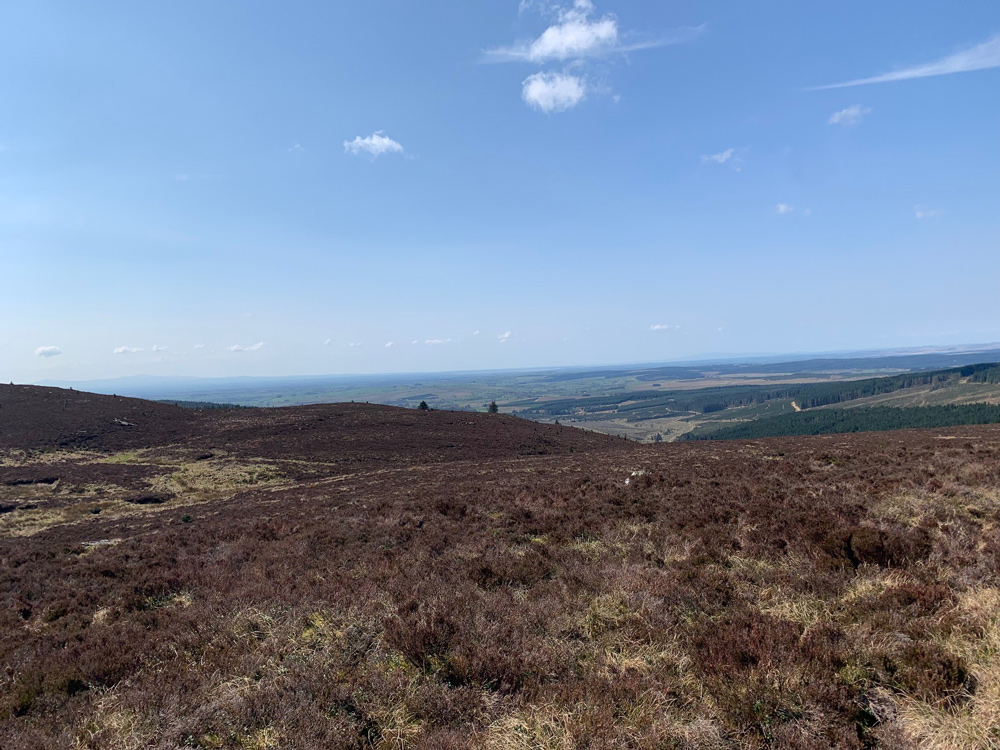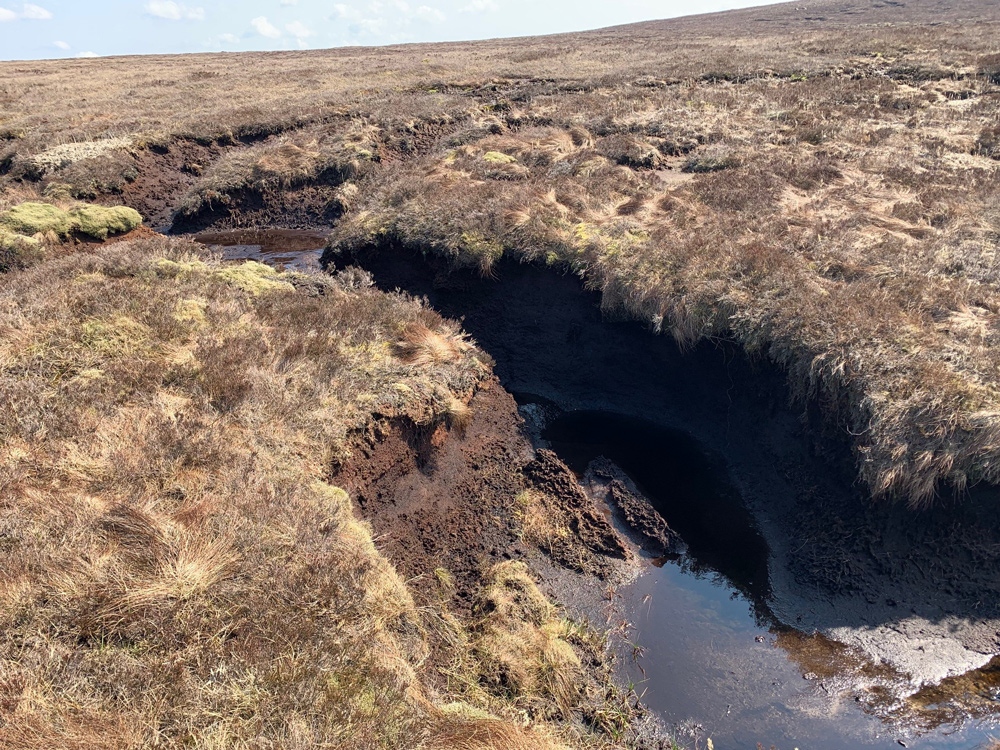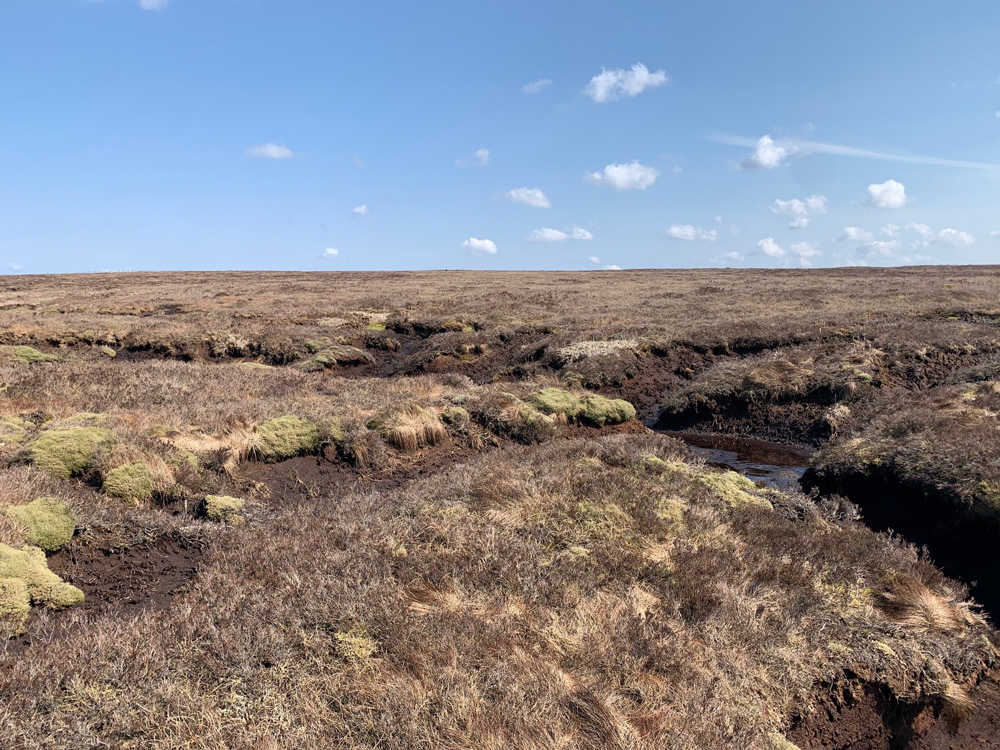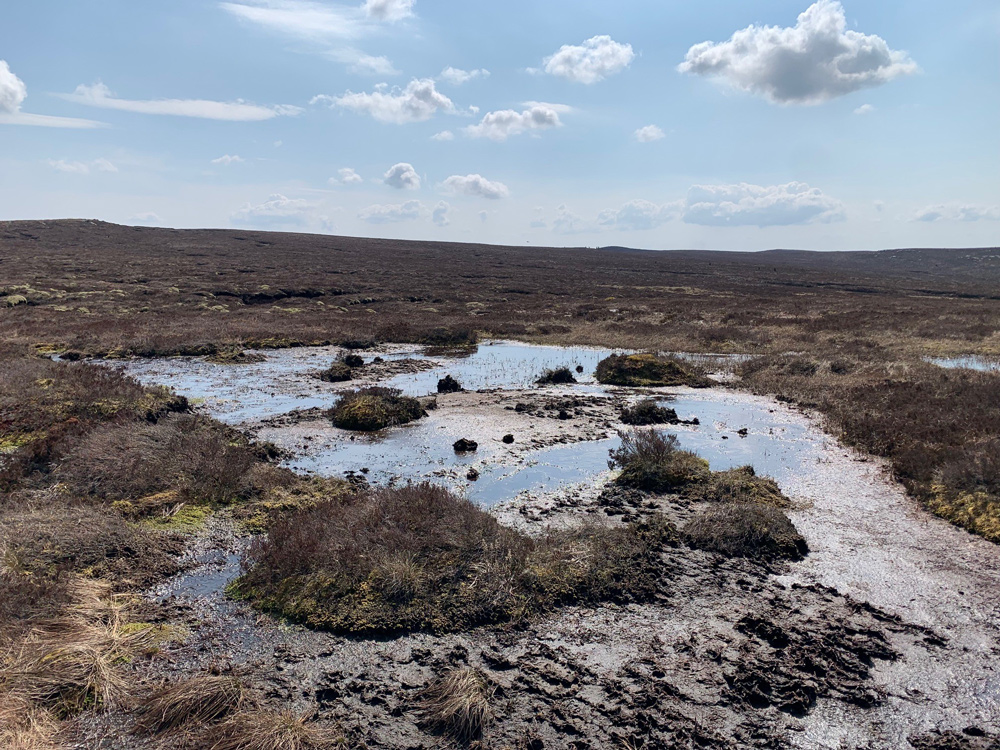
Groundbreaking Peatland Restoration Project For Cumbria
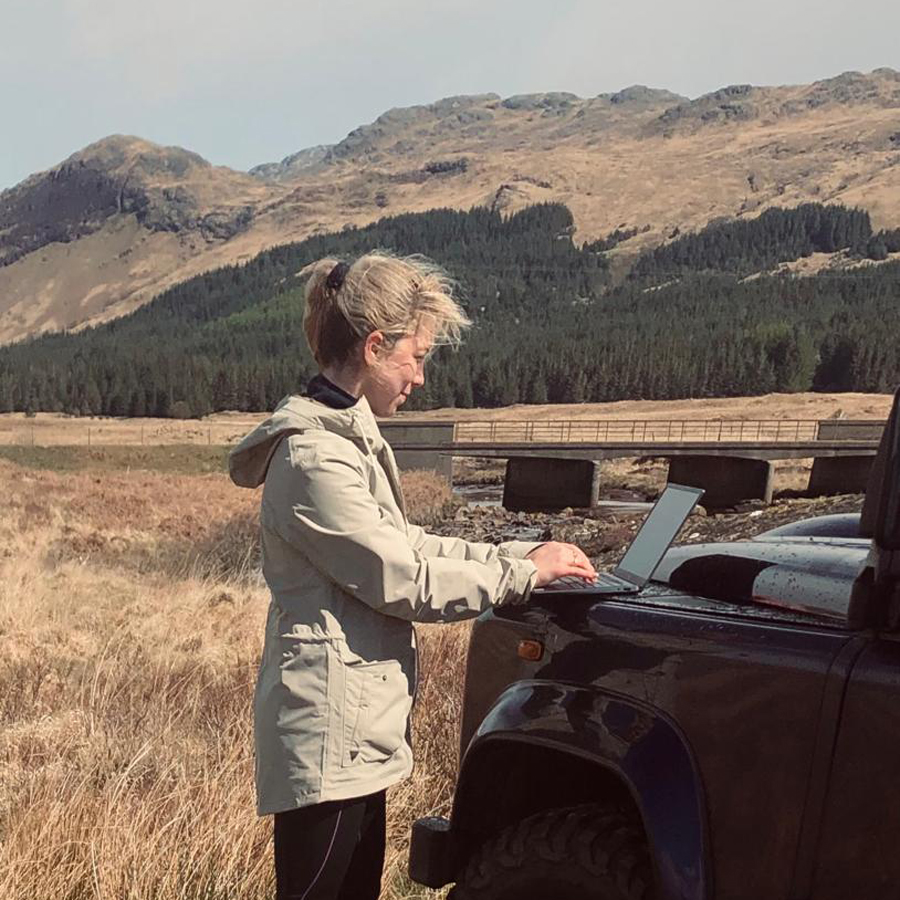
|
Home » Published: 10th November 2022 This Article was Written by: Betsy Glasgow-Vasey - Ridge Carbon Capture |
Ridge Carbon Capture Ltd (RCC) has launched a groundbreaking peatland restoration project in Northeast Cumbria.
Situated near Bewcastle, the Ridge Graham project will restore 450 hectares of degraded peatland which is actively releasing greenhouse gas emissions. By restoring this vital ecosystem, the project will naturally remove tens of thousands of tonnes of CO2 from the atmosphere over its lifetime.
The Ridge Graham project is one of the first of its kind, breaking new ground for UK peatland restoration and setting the standard for privately-developed peatland restoration projects.
The project is backed by Natural England and DEFRA, with funding coming from the Nature for Climate Peatland Grant Scheme (NCPGS) to support initial restoration works on the site.
Emissions from degraded peatlands make up approximately 5% of the UK’s total greenhouse gas emissions. Restoring these peatlands prevents the release of CO2 and other climate-warming emissions, helping the UK on its path to net zero. Peatland restoration also provides wider environmental benefits such as increased biodiversity, flood resilience and water quality.
In addition, under the IUCN UK Peatland Code, the restoration of eligible degraded peatland can be measured and certified to produce Peatland Carbon Units which can be used by individuals and businesses in the UK to mitigate unavoidable CO2 emissions.
As part of the project, RCC is also working to develop an internship program with nearby colleges. This initiative will give local young people the opportunity to learn more about peatland restoration, develop key skills and gain experience in carbon capture and sequestration.
RCC is an affiliate of Ridge Clean Energy Ltd, a UK renewable energy developer focused on community partnerships.
“This project will provide enduring benefits”, said Betsy Glasgow-Vasey, Development Lead at RCC. “Combining peatland restoration with the needs of the environment and local communities is one of the most powerful ways to tackle climate change and its impacts.
This project will show how public/private investment can deliver public good, by naturally removing greenhouse gas emissions, delivering climate repair, and creating opportunities for local people.
We are delighted to receive support from Natural England and DEFRA, and we look forward to working with them and the UK Peatland Code team to make this a pioneering success.”
Steve Clarke, Scheme Manager for NCPGS at Natural England said, “The projects in the Scheme are set to make a significant reduction in the amount of carbon being lost from England’s degrading peat beds, as well as producing a host of other benefits for landscape, water and biodiversity’.
Mr Malise Graham, owner of the Ridge Graham site, said, “This land has been owned by my family for over 400 years, and I am delighted its principal role will now be to support our environment and climate.
This will be a shining example of the good that peatland restoration can do, both for nature and for our community, and I hope to see more projects like this across England.”
Ridge Graham Peatland Restoration Project – Technical Summary and Benefits
- Peatlands are a globally important carbon store, holding around one third of the world’s carbon, despite only covering approximately 3% of the land area. When in a natural, pristine condition – waterlogged – peatlands continuously sequester carbon dioxide from the atmosphere. These emissions are transferred into partially-decomposing organic matter, which when saturated, will hold and accrue carbon dioxide enduringly.
- Around the world, peatlands have historically been drained for various reasons, such as agricultural and industrial purposes. This drainage has damaged these precious ecosystems, exposing their key organic matter to the atmosphere and oxidisation, forcing them to release emissions and their stored carbon.
- Water quality will be supported owing to sediment removal. Additionally, downstream rivers often benefit from increased fish populations due to the increased cleanliness of the river as a result of peatland restoration.
- The project will also help improve Cumbria’s flood resilience as the project is situated in a catchment at the source of the River Irthing, which directly feeds into the Eden outside of Carlisle, the location of previous major flooding events.
- Restoring peatland boosts biodiversity. The creation of small pools from borrow pits for peat dams lead to the provision of excellent habitat for invertebrate communities. Boosting invertebrate populations often results in growth further up the food chain, providing a good example of bottom-up biodiversity restoration.
- Ridge Graham will play an important role in supporting the UK Government, DEFRA, and Natural England’s target to start restoration across 35,000 hectares of damaged peatland in England by 2025, as part of the England Peat Action Plan.
- Ridge Graham will abate tens of thousands of tCO2 over 100 years, until 2123.
About Ridge Carbon Capture
- Ridge Carbon Capture (RCC) is an Oxfordshire-based Nature-based Solutions (NbS) developer with an established and successful history of working with landowners and local communities to research, develop, finance, construct and maintain NbS projects across the UK.
- Since 2003, our team at Ridge has combined a proven track record of developing high quality UK renewable energy projects with working alongside local delivery partners and communities to create enduring and sustainable local benefits. The construction and operation of our UK renewable projects developed our expertise in peatland restoration.
- Our projects generate UK-verified carbon offsets under the regulations of the IUCN UK Peatland Code. We work to ensure our projects deliver the highest standards of climate repair.
- We work with landowners and delivery partners to design restoration projects that complement wider estate and landscape management requirements, with sensitive development being at the heart of our work.
Contacts
Name: Betsy Glasgow-Vasey (Development Lead)
Email: restoration@ridgecarboncapture.com
Phone: 01608 819253

